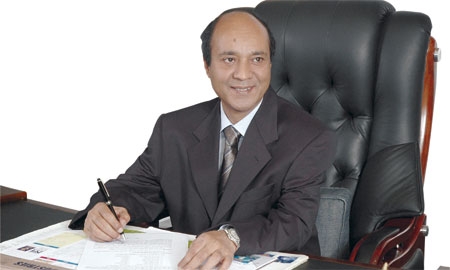Back in 1976, Mostafa Kamal started his journey with a small trading initiative for essential consumer goods at the Moulvi Bazaar, in the heart of Dhaka’s wholesale trading market. His vision was to switch from trading to industrialisation in order to cater to the demand of the local market and decrease overdependence on imports. Thus,
Meghna Group of Industries (
MGI) was formed, which is now one of the largest and fastest-growing conglomerates in the country.
Mr Kamal set up his first industry in 1989 in the industrial park at Meghnaghat, Sonargaon, in the district of Narayangonj. Over the years, Meghna Group of Industries has added several industries to its portfolio, and today has 29 industries ranging from construction to fast-moving consumer goods (FMCG) to heavy industrial products. Presently, MGI employs about 15,000 permanent and casual workers.
Mr Kamal is something of a visionary leader, with aspirations to bring out the best in people, to encourage them to come together and become innovators and agents for change in the country. He hopes his own experience can serve as an example to others: following the war and the epidemics which devastated Bangladesh, Mr Kamal worked relentlessly, for the equivalent of about $5 (£3.20) per month. When asked about his subsequent success, he says simply, “You need to be hard-working and have ambition. If you are hard-working, you will be successful.”
“WE HAVE BEEN GROWING FAST AND THERE ARE SEVERAL PROJECTS IN THE PIPELINE.”
|
Typically, despite his wealth, Mr Kamal is not resting on his laurels, and feels his country must not do so either. “This year, China and India’s growth is around 10 to 12 per cent, so we are not happy with our 6.5 per cent. We are talking to the Honourable Prime Minister and the Honourable Ministers of Commerce and Finance about infrastructure. Our entrepreneurs are trying to reach a target of 8 per cent growth in one to two years, and this is not impossible because our entrepreneurs are very aggressive and intelligent.”
He feels a route to further success lies in increased business with the UK. “The bond between UK and Bangladesh is very strong and goes back a few hundred years. The UK has engaged with so many development projects in Bangladesh, and there are huge number of Bangladeshi migrants in the UK who could play a pioneering role in investing in infrastructure, energy, IT, education and tourism.”
As for the Meghna Group of Industries itself, the future looks bright. “We have been growing fast and there are other projects in the pipeline, like expansion in our cement sector. Several other projects, such as chemical and seed-crushing, are under construction. By 2013 the total turnover of the group will be close to $2 billion. At the end of 2013 we may have over 15,000 regular and casual workers.”
With such numbers comes a certain responsibility, which Meghna Group of Industries does not shirk. “Our group is contributing a lot to CSR (corporate social responsibility). We make houses for homeless people, including sanitation and bathrooms. We are also involved in donating money for both national and international disasters, such as tsunamis, local floods and cyclones. I have involved myself with a university and hospitals, and school and college with boarding facilities.”

0 COMMENTS